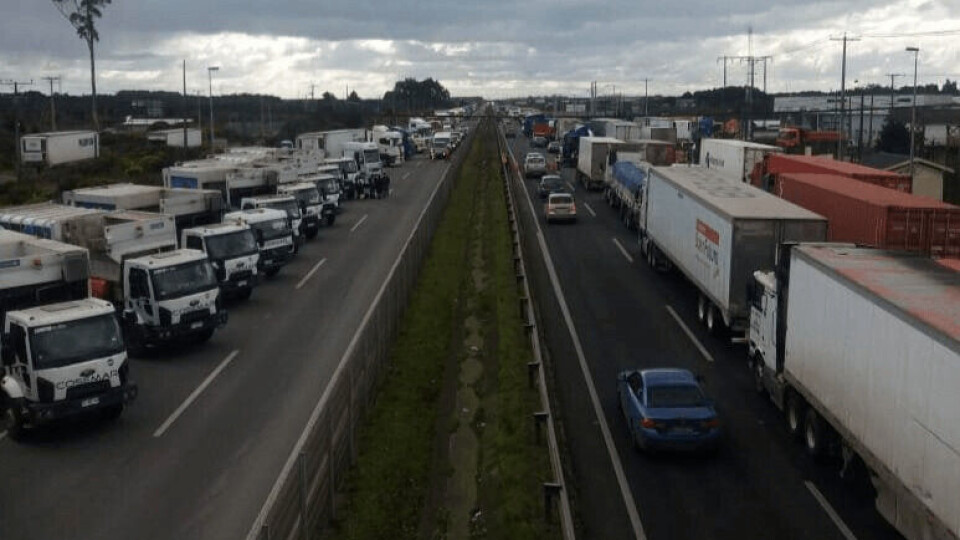
Wheels come off Chilean salmon industry
Chilean salmon producers have outlined the increasingly serious effects of a national strike and road blockades by truckers demanding greater protection from violence in the south of the country.
The salmon industry said that it empathises with the demand for greater safety for truckers, however, the strike has frozen shipments of fresh salmon and the transport of viscera from processing plants.
Since last Thursday, August 27, an indefinite strike has been carried out, organised by the National Confederation of Cargo Transport of Chile (CNTC-Chile), which includes truck owners and drivers from different salmon farming regions such as Los Lagos, Aysén and Magallanes.
State security law
Chile’s interior minister, Víctor Pérez, yesterday threatened to invoke a state security law to penalise truck drivers for blocking arterial routes and damaging supply chains after talks between the two sides broke down.
Perez said the government had made a “serious and all-encompassing” offer of greater security for the industry, without giving further details.
“We believe the rejection of this proposal is a mistake, since they promised a peaceful demonstration that unfortunately has given rise to instances of supply chain interruption and road blockades,” Perez said, although today a Political Committee was convened to analyse the issue.

Threat to exports
Arturo Clément, president of industry organisation SalmonChile, told Fish Farming Expert’s Chilean sister site, Salmonexpert.cl, that “we empathise with the reasons that give rise to this situation and we hope that a solution to this conflict will soon be reached that allows transport tasks to be carried out in a safe environment and that industries, especially food industries, continue to comply with supply and export chains appropriately as we have during the pandemic”.
He added: “It is important that this conflict is resolved as soon as possible to maintain the normal logistics chain of the industry and thus avoid any sanitary inconvenience in the process plants.
“So far, we have registered an impact on the transport of fresh salmon to the Metropolitan region due to roadblocks and we are beginning to see problems that may eventually affect exports to different markets due to the impossibility of arriving with loads at the points of maritime and air shipment.”

Shipments paralysed
Andrés Lyon, general manager of Multiexport Foods, told Salmonexpert that in the regions of Los Lagos and Aysén, “there is only some processing in plants, but without dispatches. There is little movement in Magallanes”.
“The supply of processing plants and product shipments is paralysed, while the delivery of fish feed is without problems so far, given that shipments are maritime and there is stock in the ports. It is difficult to estimate the effects of the quarantine / strike combination, but all regions are affected by supply,” admitted Lyon.
The general manager of Salmones Austral, Gastón Cortez, said that due to the strike “our plants are without processing activity, and we cannot dispatch to the port or airport, so exports are paralysed”.
Cold stores filling up
Francisco Muñoz, economy minister for Los Lagos region, told Salmonexpert that “the impact that the mobilisations of truckers are having is being reflected in the aquaculture industry”.
“In salmon farming, it is observed both in fresh product, which has not been able to be exported to destinations such as the United States, and in the frozen format, as the spaces in cold stores are limited, it is also hit,” he added.
“The transport of viscera produced in the plants, which is destined for Calbuco and Puerto Montt, has not been able to materialise, and we hope that a solution will emerge so that they transit and do not appear sanitary problems in the processing units.”























































